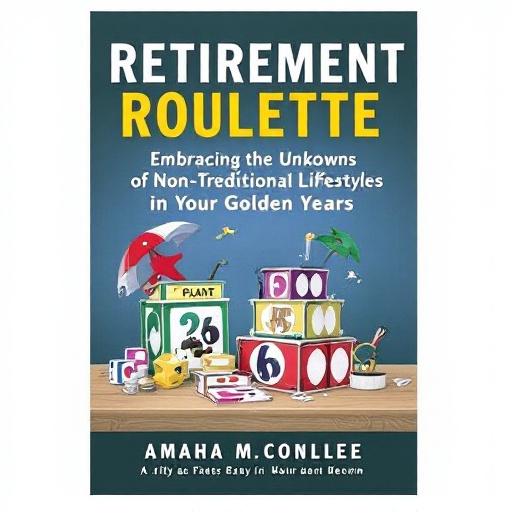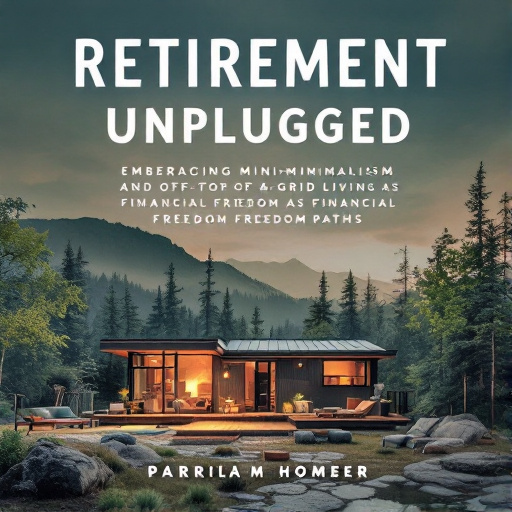Featured Articles
- "Beyond Savings: How Gardening and Hobbies Can Transform Your Retirement Plans"
- Reimagining Retirement: How Virtual Reality Could Transform Senior Living and Financial Independence
- "Rethinking Retirement: How Eco-Friendly Living Is Shaping Future Financial Planning"
- Retire in Style: Exploring the Rise of Sustainable Living Communities for Seniors
- "Retirement Reimagined: How Eco-Conscious Living is Shaping Future Financial Landscapes"
"Rethinking Retirement: How Eco-Friendly Living Is Shaping Future Financial Planning"
"Rethinking Retirement: How Eco-Friendly Living Is Shaping Future Financial Planning"
Rethinking retirement isn’t just about saving more money; it’s about embracing eco-friendly living as a cornerstone of future financial planning. This paradigm shift can enhance financial stability, reduce living costs, and contribute to a healthier planet.
The New Retirement Paradigm
With global temperatures rising and ecological crises becoming a pressing concern, the traditional view of retirement is undergoing a seismic shift. Millennials and Gen Z, who are keenly aware of climate change, are steering conversations toward sustainable living. According to a survey by Deloitte, nearly 40% of millennials consider a company’s environmental policy when evaluating potential employers (Deloitte, 2021). Thus, the generation that will one day inherit these retirement planning conversations is already advocating for greener practices, including in their financial decisions.
Breaking Down the Costs
Interestingly, adopting eco-friendly practices can lead to significant savings. For example, a shift to renewable energy sources can slash utility bills. A study from the National Renewable Energy Laboratory found that homes equipped with solar panels can see energy savings of $20,000 over 20 years (NREL, 2020). When considering expenses in retirement, where fixed income becomes paramount, this can be a game-changer.
Case Study: The Green Retirement Microcosm
Meet Jane and John, a couple in their early 60s who recently retired in a tiny, energy-efficient home. By downsizing and eliminating their reliance on oil-based heating systems, they’ve cut their annual living expenses by nearly 30%. “It feels wonderful to be sustainable and save money at the same time,” Jane exclaimed. The couple channels their savings into engaging in sustainable travel, where they explore eco-friendly lodges rather than traditional hotels. Their story is a testament to how retirement can marry financial prudence with a commitment to the planet.
The Role of Financial Advisors
Financial advisors are beginning to rethink their strategies and incorporate eco-conscious planning into their offerings. Jessie Lee, a certified financial planner, states, “Clients are increasingly asking how they can align their portfolios with their values. Eco-friendly investments, like green bonds, are becoming more popular.” This adaptability highlights the importance of integrating sustainability into retirement strategies, as financial professionals respond to a demographic shift.
Practical Steps Toward a Sustainable Retirement
The exciting part is that adopting an eco-conscious lifestyle isn’t simply about lofty goals; it can be practical, straightforward, and even fun! Here are actionable steps for anyone, regardless of age, looking to align their retirement strategy with sustainability:
- Downsize: Consider moving into a smaller home, not only to lower costs but also to minimize the ecological footprint. Think of it as a “mini-me” approach to real estate where less is more.
- Green Investments: Investigate funds and stocks that focus on green technologies. A study from Morningstar found that sustainable funds have outperformed traditional funds, demonstrating that saving the planet can also save your retirement plan (Morningstar, 2021).
- Gardening: This may sound cliché, but growing your own food can be a satisfying and cost-effective alternative. A study in the Journal of Environmental Management highlighted that home gardening reduces grocery bills by up to 30% (Journal of Environmental Management, 2022).
- Participate in Local Initiatives: Joining local community projects aimed at environmental sustainability can also provide a well-rounded purpose in retirement while fostering connections that could lead to new financial opportunities.
Turning Hobbies into Green Income
Retirement doesn’t have to mean full-stop; rather, it can also be a time to explore new avenues. Many retirees are turning their hobbies into income-generating ventures. For instance, individuals passionate about cooking have started organic food trucks, helping boost local economies while promoting sustainable food options. Gary, a retiree who turned his love for beekeeping into a business, now sells honey and bee products at local markets, achieving both joy and financial gain.
Attracting the Next Generation of Retirees
What does this mean for those of us just starting out? The pool of young investors is more empowered than ever. According to Accenture, 76% of young investors believe sustainable investing will outpace other forms of investing over the next decade (Accenture, 2021). This isn't just a fleeting trend; it’s a fundamental mindset shift. By incorporating eco-friendly practices into retirement planning now, you can pave the way for a secure financial future while still preserving the world for future generations.
Humor: Laughing All the Way to the Bank
Did you hear about the banker who decided to go green? He started planting trees to offset his ethical dilemmas. Sounds like an investment with a lot of roots! The reality, however, is that your portfolio can branch out in many eco-friendly ways while also making you feel good about where your dollars go.
The Intersection of Minimalism and Financial Freedom
Climate change awareness brings along a companion: minimalism. Minimalism isn’t just a desire to declutter; it’s about making deliberate choices that can save both the planet and your bank account. The average American household spends over $1,700 a year on food that ends up in the landfill (USDA, 2020). By adopting a minimalist approach, you can cut back on unnecessary purchases and direct those funds toward investments that contribute to long-term sustainability.
Two Generations, One Goal
As a 25-year-old, I've been surprised by the older generations' investment in sustainability, from community-supported agriculture to energy-efficient houses. It’s not just younger people engaged in this change but also Boomers, who are looking to leave a lasting impact. A fascinating study by AARP revealed that 55% of adults over 50 want to be more involved in environmental efforts (AARP, 2021). What does this mean? Cross-generational collaboration could become a powerful force driving a more sustainable financial future.
Conclusion: The Road Ahead
In summary, as we rethink retirement and its unconventional avenues, embracing eco-friendly living emerges as a crucial part of financial planning. From saving money to contributing to global sustainability efforts, this focus represents not just a shift in lifestyle but a transformative investment in our collective future. So, as you forge your path toward retirement, consider how adopting eco-friendly practices can enhance not only your financial picture but also the world you leave behind.




